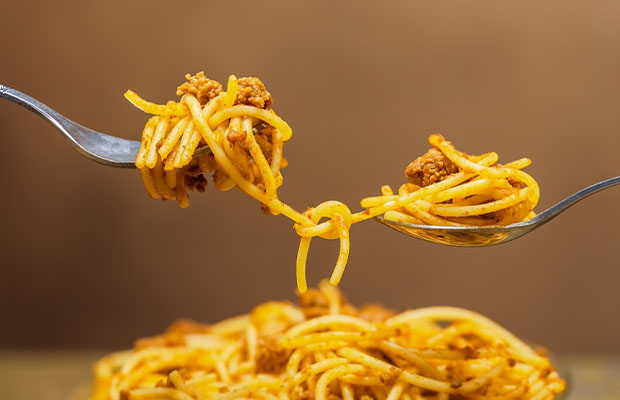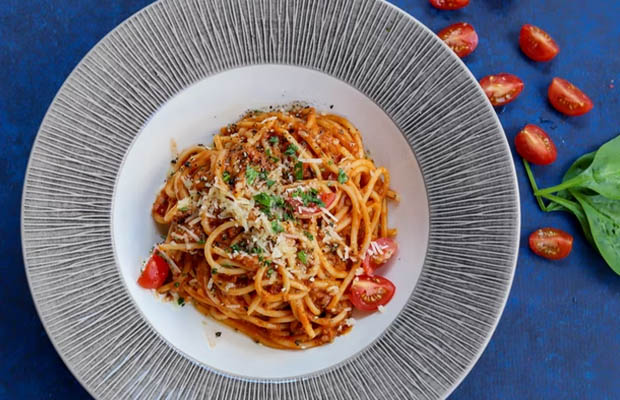One of the most favored foods on earth is pasta. Pasta, which was once only available in wheat varieties, is now available in a wide range of gluten-free and other ingredients, including pea, lentil, and bean.
How long does pasta last? Fresh pasta will last 4-5 days. Pasta’s optimal shelf life, method of preparation, and method of storage are just a few of the variables that affect how long it will stay fresh.
This article discusses the best storage methods for keeping pasta as fresh as possible and the amount of time various types of pasta last in the refrigerator.

Table of Contents
How Long Does Pasta Last?
Pasta that has been cooked should be kept in the refrigerator, just like other prepared foods and leftovers.
This is due to the fact that cooked pasta contains moisture, which eventually promotes the growth of mold, and cooler temperatures delay expiration.
It’s useful to know how long various pasta varieties and preparations can be stored in the fridge before they need to be thrown out.
The expected fridge life of various pasta varieties depends largely on the primary ingredient, such as whether it is made from lentils, wheat, or contains eggs.
The duration of some of the most well-liked varieties of pasta in the fridge is as follows:
- Fresh wheat pasta made at home: 4–5 days
- Wheat pasta from a local supermarket: 1–3 days
- Cooked wheat pasta: 3–5 days
- Pasta made with lentil, bean, or pea sauce: 3–5 days
- Gluten-free pasta: 3–5 days
- Pasta with a filling, such as tortellini: 3–5 days
- A cooked pasta dish, such as lasagna, with sauce 5 days
Although specific dishes may differ from those listed here, you can assume that most cooked pasta spoils within a week of being prepared.
Before you eat your pasta, it’s still crucial to check it for signs of deterioration.
How To Identify Bad, Rotten, Or Spoiled Pasta?
The prevention of foodborne illness will be aided by the use of proper hygiene and food safety measures.
Although it’s not a foolproof test, your senses are typically the best indicators of whether or not your pasta has gone bad. A discoloration and a dull, slimy appearance, which appear before the formation of mold, are some common characteristics of bad fresh or cooked pasta or noodles.
Of course, eating spoiled food carries some health risks, so always remember to use good food hygiene and consume your food before it has reached the end of its shelf life!
Can Eating Pasta That Is Expired Make Me Sick?
based on availability. You have very little chance of contracting an infection from bacterial growth because dry pasta contains no moisture. However, if consumed after going bad, fresh pasta, as well as cooked pasta, can both be sources of foodborne illness.
The Dangers Of Eating Expired Pasta
If dangerous microorganisms are growing on old pasta, eating it could make you ill, and different people may be impacted by doing so.
According to what was growing on the pasta you consumed, you might experience mild to severe food poisoning symptoms.
The most typical signs of foodborne illness are gastrointestinal in nature, resulting in upset stomach, diarrhea, and vomiting.
One of the most common foodborne pathogens that can grow on old pasta is B. cereus, which can cause cramps, nausea, diarrhea, and vomiting. This bacteria has even been known to result in fatalities in severe cases.
If you eat old pasta that has other ingredients in it, such as meat, eggs, or dairy products, it’s more likely to be exposed to other common germs like Salmonella, Campylobacter, Clostridium, or Listeria as well.
It’s best to adhere to the general shelf-life expectations listed above, inspect your pasta before eating it, and use proper storage methods to reduce your risk of contracting a foodborne illness from eating leftover pasta.
How Can Leftover Pasta Be Heated Up Safely?
When you’re ready to eat leftover pasta, you can either eat it cold straight from the refrigerator or reheat it using a few suggested techniques.
When eating plain pasta without sauce, you can reheat it by putting it in a strainer and letting it sit in boiling water for 30 to 60 seconds.
For about 20 minutes at 350°F (176°C), leftover pasta with sauce can be baked in the oven in a heat-safe dish.
On the stovetop, it can also be heated in a skillet while being gently stirred over medium heat.
To reheat leftover pasta, use the reheat settings on your microwave and stir gently until there are no cold spots in the dish that is covered in the microwave.
There is little chance of bacterial contamination if you choose to eat cold pasta as long as it has been stored properly in a refrigerator at 40°F (4°C) and you are eating leftovers quickly.
If reheating, be sure to heat it thoroughly to at least 165°F (74°C) and eat it within 2 hours to prevent bacterial growth
How To Store Pasta?
With the dry pasta, let’s begin. You should store dry pasta in a cool and dry area, preferably in the pantry or in the kitchen.
You can either leave the pasta in the package after you’ve opened it or move it to an airtight container. The food product is much better shielded from moisture by a container than it is by plastic packaging.
When it comes to fresh pasta, either store-bought or one you made yourself, it needs to be chilled. In other words, you should keep it in the refrigerator or, if you want to increase its shelf life, in the freezer.
Once you open the package of store-bought fresh pasta, transfer the rest into an airtight container. With leftover homemade pasta, the same principle applies.
Last but not least, cooked pasta leftovers go into the fridge in an airtight container, just like leftover pasta salad. Additionally, add extra virgin olive oil to the pasta if you haven’t already combined it with the sauce. By doing this, you can prevent clumping.
There’s no need to add more if the pasta and sauce are already combined.
Conclusion
Pasta is a widely consumed food in the world and is made from a variety of ingredients, including wheat, legumes, and gluten-free grains.
Although the pasta “use by date” information is typically trustworthy, keep in mind that individual circumstances will vary, so our advice should only be used as a suggestion and not as a replacement for the advice of your healthcare provider. Please eat sensibly!

